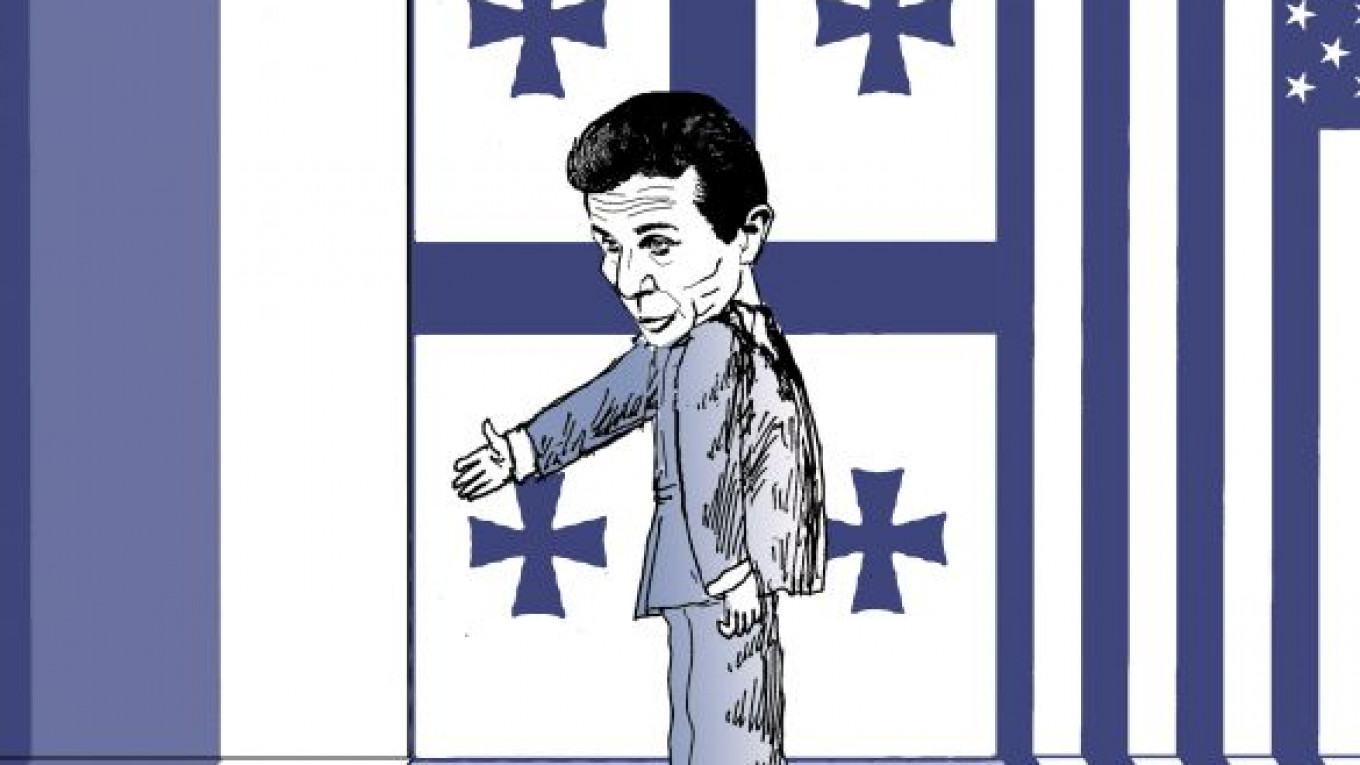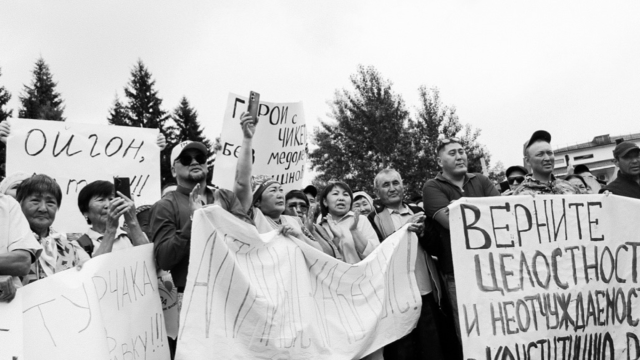Many members of Russia's political elite have been wondering whether Georgia will become a source of renewed tensions between Russia and the United States once billionaire Bidzina Ivanishvili and his Georgian Dream coalition, which won the parliamentary elections on Oct. 1, assume power.
Ever since Georgian President Mikheil Saakashvili was elected in 2003, the Kremlin has viewed Georgia as a "U.S. project." Russia sees this project as being focused not so much on supporting the democratic process in Georgia as in working to undermine Moscow's interests in the region. Russian authorities generally view all U.S. efforts to "support democracy" as subversive schemes by the U.S. State Department.
At the same time, however, many critics have already cast Ivanishvili as a potential "agent of Moscow," pointing out that he could not have accumulated assets worth $6.4 billion, gained primarily during his 20 years of doing business in Russia, without support from top officials in Moscow. Although the Kremlin was restrained in its response to Ivanishvili's victory, it clearly relished the defeat of Saakashvili, whom Moscow despises with a passion.
Although Ivanishvili's coalition won a comfortable 16-seat majority in parliament, the political situation in Georgia in the coming months is likely to be anything but calm. First, Georgian Dream is a motley coalition of six different political parties whose solidarity could easily fall apart in the near future. Second, Saakashvili will formally retain his presidential post for a year, after which Georgia will switch from a presidential to a parliamentary republic in accordance with amendments to the country's constitution that were adopted in 2010 and will go into force in October 2013.
But it is unlikely that Saakashvili will passively wait out the next year as a lame duck without attempting to influence affairs in his own favor. One option is to call for early parliamentary elections. Saakashvili understands that public opinion can be easily manipulated in Georgia and could quickly swing back toward his camp. He also understands that the Georgian Dream electoral victory was largely a result of luck and good timing after a video showing the torture of prisoners in a Georgian prison was released just before the elections. This scandal that was skillfully exploited by Ivanishvili.
Under Saakashvili, Russian-Georgian relations were essentially in a state of war. Moscow refused to view the Georgian president as a partner with whom it could sit at the same table and hold talks. With Ivanishvili as prime minister, the two countries have a good opportunity to rebuild relations from scratch. But experience shows that Moscow has not liked a single Georgian leader since 1991, even if it did initially welcome their rise to power on occasion. Russia's ruling elite have always been skeptical about the whole idea of Georgian statehood, viewing an independent Georgia as something of a historical aberration. What's more, an entire laundry list of unresolved issues in Russian-Georgian relations threatens to taint the Kremlin's view of Ivanishvili in much the same way as they colored Moscow's attitude toward Saakashvili.
One of the thorniest issues is Tbilisi's refusal to recognize the independence of South Ossetia and Abkhazia, regions that broke away from Georgia as a result of the Russia-Georgia war in 2008. In theory, Georgia could do a lot to earn Moscow's favor, such as rejoining the Commonwealth of Independent States, joining the Collective Security Treaty Organization or declaring, as Ukraine did, its neutrality status with regard to NATO.
But even if Tbilisi adopted these measures, it is unlikely that Ivanishvili or any other Georgian leader would take South Ossetia and Abkhazia off the table. What's more, the majority of Georgians support the country's eventual accession to NATO, and Ivanishvili is not likely to oppose popular opinion on this issue.
At the same time, however, many Georgians would also like to see improved relations with Russia, including the restoration of regular flights and the easing of visa regulations between the two countries, as well as an end to trade wars over Georgian wines and Borjomi water. These are the areas in which a thaw in Russian-Georgian relations is possible.
But the practical implementation of these steps will largely depend on how Tbilisi pursues its relationship with Washington. If under Ivanishvili Georgia's relations with the U.S. remain just as strong as they were under Saakashvili and if Ivanishvili supports a gradual integration with NATO, then Georgia's thaw with Russia will end before it ever begins.
Georgy Bovt is a political analyst.
Related articles:
A Message from The Moscow Times:
Dear readers,
We are facing unprecedented challenges. Russia's Prosecutor General's Office has designated The Moscow Times as an "undesirable" organization, criminalizing our work and putting our staff at risk of prosecution. This follows our earlier unjust labeling as a "foreign agent."
These actions are direct attempts to silence independent journalism in Russia. The authorities claim our work "discredits the decisions of the Russian leadership." We see things differently: we strive to provide accurate, unbiased reporting on Russia.
We, the journalists of The Moscow Times, refuse to be silenced. But to continue our work, we need your help.
Your support, no matter how small, makes a world of difference. If you can, please support us monthly starting from just $2. It's quick to set up, and every contribution makes a significant impact.
By supporting The Moscow Times, you're defending open, independent journalism in the face of repression. Thank you for standing with us.
Remind me later.







